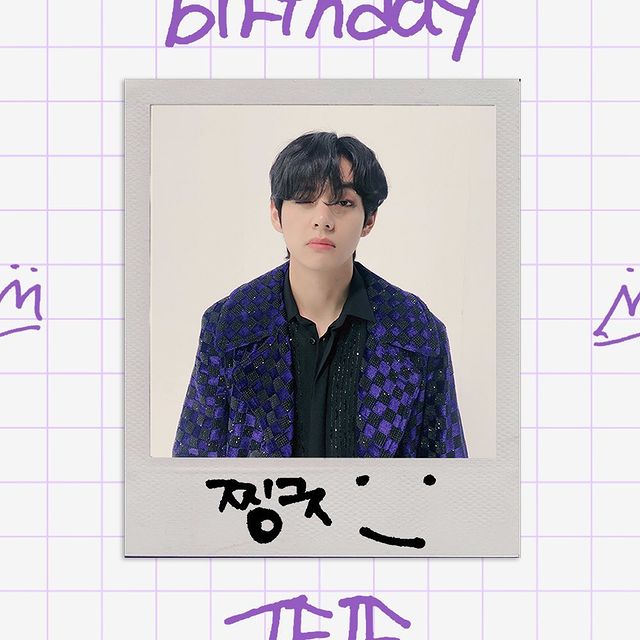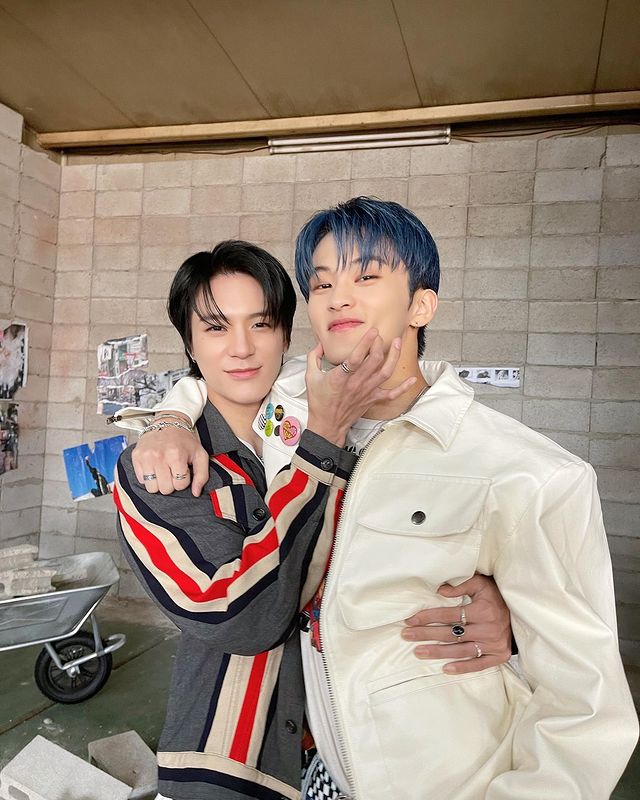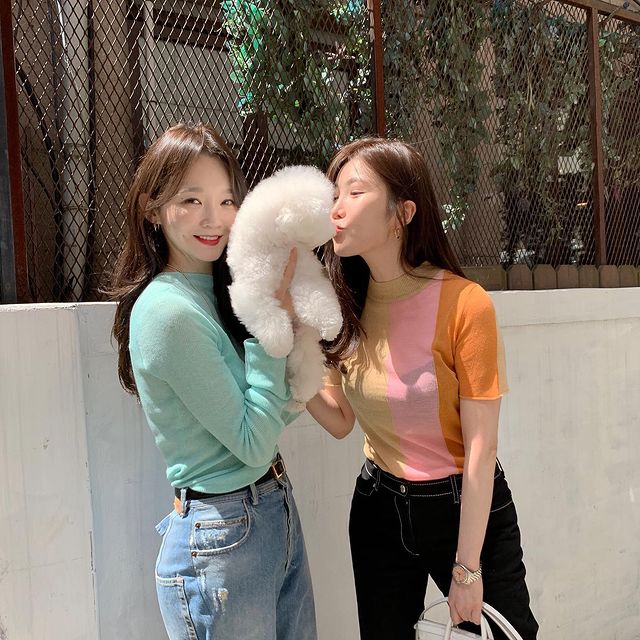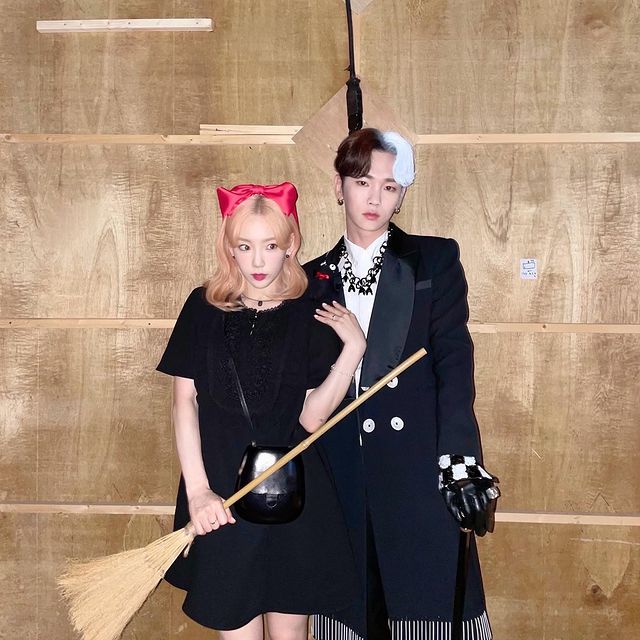Korean texting codes
Speed is the key to survival in Korea. From food delivery to the pace of life, Korea’s hasty culture is now unstoppable. This need for speed extends to texting as well – Koreans are always coming up with new abbreviations to get their points across quickly yet effectively.
While abbreviations in the form of words are common, numerical abbreviations are something else. To get started, memorise these 10 simple Korean texting codes that will help you save time and keep up with Korea’s latest messaging style.
Table of Contents
1. 700

Image credit: @bts.bighitofficial
The number “700” became widely known to the public as a trendy term when it appeared in JTBC’s Knowing Bros, a variety show featuring Yoo Joon-sang, Kim Se-jung and Cho Byung-kyu.
“700” represents “ㄱㅇㅇ”, which is an abbreviation for “귀여워” (gwi-yeo-wo). This translates to “cute”.
The next time you text about cute oppas with your friends, use “700” to express how adorable they are.
2. 1004

Image credit: @iluvyub
“1004” (cheon-sa) is a homophone of the word “angel” in Korean.
“천사데이” (cheon-sa-dae-ee), which means “angel’s day”, is used to refer to the birthdays of idols that fall on 4th October.
Some idols who are born on “angel’s day” include Kim Yu-bin from Wonder Girls and Yoon Jeong-han from Seventeen.
3. 5959

Image credit: @nct_dream
“5” is pronounced “o”, while “9” is pronounced “gu” in Korean. Together, “5959” sounds like “o-gu-o-gu.” It’s typically used to express how much you adore someone or how adorable they are.
For example, when your friend or partner sends a selfie, you can reply with “5959” as a response to their cuteness.
Another instance of using “5959” (o-gu-o-gu) is when you want to comfort someone. For example, when your friend sends a text about having had a bad day, you can reply with “5959” as a way of expressing sympathy.
4. 머선129

Image adapted from: JTBC Entertainment
“머선129” (meo-seon-il-ee-gu) is actually a phrase in the Gyeongsang dialect. “머선” (meo-seon) means “무슨” (moo-seun; what) in the standard Seoul dialect, while “129” is read as “일이구” (il-ee-gu).
Hence, when you read “머선129” (meo-seon-il-ee-gu) out loud, it means “what’s going on?” or “what’s the matter?”
This is usually used to express dismay. For example, when there’s a sudden rise in community Covid-19 cases, you can say “머선129” (meo-seon-il-ee-gu) to convey how appalled you are.
5. 하2

Image credit: @hee_ya_124
“하2” (ha-ee) simply means “hi”. “하” is pronounced “ha”, and “2” is read as “ee” in Korean. Put them together and it sounds like “ha-ee” or “hi”.
You can send a text with “하2” (ha-ee) as a cute way of greeting or starting a conversation with your friend.
6. 빠2

Image credit: @primula._.m0desta
Similar “하2” (ha-ee), “빠2” (bba-ee) is the equivalent of “bye” in English. “빠” is pronounced “bba”, while the number “2” is read as “ee”. When you combine these two, it sounds like “bba-ee” – a cute way of saying “bye”.
Although “빠2” is used in texting, many Koreans also say it in real life when they’re bidding goodbye to their friends.
7. 8282

Image credit: @iammingki
“8282” is read as “pal-ee-pal-ee” in Korean. When said out loud, it sounds similar to “빨리빨리” (bbal-lee-bbal-lee), which means “quick quick”.
In 2013, Davichi released a song titled 8282, and it’s one of their most popular songs till date.
The next time your friend is running late, send a text urging them with “8282”.
8. 7942

Image credit: @bumkeyk
“7942” can be read as “chil-gu-sa-ee” in numerical Korean.
It’s an abbreviation for “친구사이” (chin-gu-sa-ee), which sounds similar to “7942” (chil-gu-sa-ee). “친구” (chin-gu) means “friend” and “사이” (sa-ee) means “relationship”. Hence, “7942” simply means “just friends”.
This is often used when someone asks if you’re in a relationship with a friend. You can reply with “7942” to express that the two of you are just friends, and nothing more.
9. 1도 ~몰라/없어

Image credit: @official.apink2011
“1도 몰라” (il-do-mol-la) is a popular wordplay coined by Henry from MBC’s Real Men.
“1도 몰라” (il-do-mol-la) roughly translates to “I don’t have a single clue”.
When your friend asks you a question that you have no answer to, you can reply with “1도 몰라”. Many Koreans even say “1도 몰라” (il-do-mol-la) in real life when they’re communicating with their friends!
The term is so popular that it was incorporated in the title of Apink’s song 1도 없어 (il-do-eob-seo), which translates to “there’s nothing.”
10. 0순위

Image adapted from: 디글 :Diggle
“0순위” (yeong-soon-wee) is a numeronym that express how someone is the top priority in your life.
For the most important person in your life, the number “1” may not be enough to express just how much they mean to you. That’s why “0” is used, because it comes before “1”. “순위” (soon-wee) means “ranking”, so when you put “0” and “순위” together, you get a slang term that emphasises the importance of someone or something.
Simple texting Korean codes
It seems like the days of cryptic pager codes are making a subtle comeback in the form of Korean texting codes. They are easy to use in everyday messages, even for people who aren’t fluent in Korean, as they mostly involve numbers instead of actual Korean characters. They are also great to use when you want to impress your Korean friends – even locals may be unfamiliar with a handful of these texting codes!
Also check out:
- Korean texting slang words you should know
- Popular Korean slang in 2020
- Useful Konglish words
- Romantic Korean phrases
- Korean phrases for shopping
Cover image adapted from: MBCdrama
